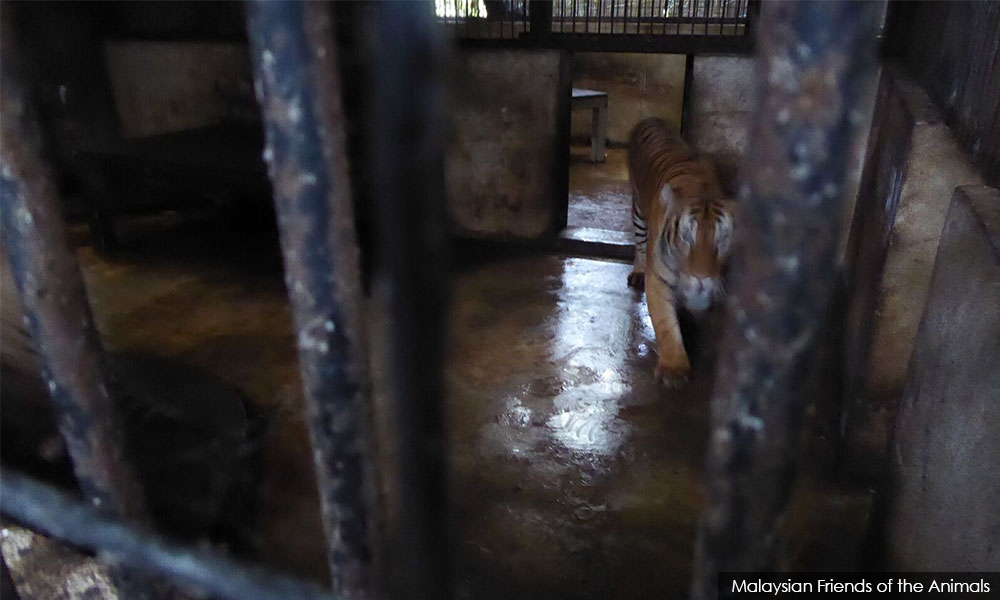LETTER | Reports last week of the Wildlife Department finding nothing wrong with conditions animals are held in at the Kemaman Zoo only serve to reinforce the general perception these government officials always find in favour of zoos.
Often over the past decade I have often wondered if this is because the department don’t know what they are doing or, they don’t care about the welfare of animals.
Whenever a complaint is made the Wildlife Department have always come to the defence of the zoo. The department sees nothing wrong, hears nothing, and does nothing. This must make its job easy and it doubtless means it can remain close friends with its buddies responsible for all this cruelty. Pity the poor animals the department is prepared to leave suffering.
The Wildlife Conservation Act may as well have been written in invisible ink. It is not enforced.
Most educated people know Malaysia’s 40 or so zoos are, with one or two exceptions, places of appalling cruelty. Profits are always put before animal care.
Is anyone in the Wildlife Department qualified to inspect zoos and assess animal welfare standards? If the answer is no, this explains a lot of things, but in law, ignorance is no defence.
One example. How many birds are kept in cages that prevent them from flying? Birds have wings, for flight. Depriving them of the ability to fly and experience natural stimulus is a breach of Malaysian law.
How many zoos have their own veterinarians with experience in wild animals? It is a legal requirement.
Has any zoo management ever be prosecuted under the Wildlife Conservation Act 2010?
Over at least 10 years, I have been highlighting bad zoos in Malaysia, the law was changed and is very good – on paper. Sadly, very sadly, but not all that surprisingly, the department's attitude and work ethics have not changed.

It’s really very simple for members of the public to assess the welfare of animals in a zoo they are visiting. A baseline guide when looking at animals and birds in zoos are the Five Freedoms for Captive Wildlife: Are the birds and animals experiencing:
1. Freedom from hunger and thirst… by ready access to fresh water and a diet to maintain full health and vigour;
2. Freedom from discomfort… by providing an appropriate environment, including shelter and a comfortable resting area;
3. Freedom from pain, injury or disease… by prevention or rapid diagnosis and treatment;
4. Freedom to express normal behaviour… by providing sufficient space, proper facilities and company of the animal’s own kind; and
5. Freedom from fear and distress… by ensuring conditions and treatment which avoid mental suffering.
Given that most zoos appear not to care about the cruelty their birds and animals suffer, and the Wildlife Department's constant defence of bad zoos, if readers do not want to be complicit in this suffering, the very best and easiest thing to do is to stay away from all zoos.
No one needs to visit a zoo, so why spend precious money paying to watch animals suffer? Bad zoos will then soon go out of business and you will have been part of the solution to ending cruelty to birds and animals – and you do want help stop the cruelty, don’t you?
If you must visit a zoo, go to Singapore, where you will see a zoo of such quality that, after this visit, you will never, ever, want to visit a Malaysian zoo again.
SEAN WHYTE is the chief executive officer of Nature Alert, a global movement to protect nature and wildlife.

